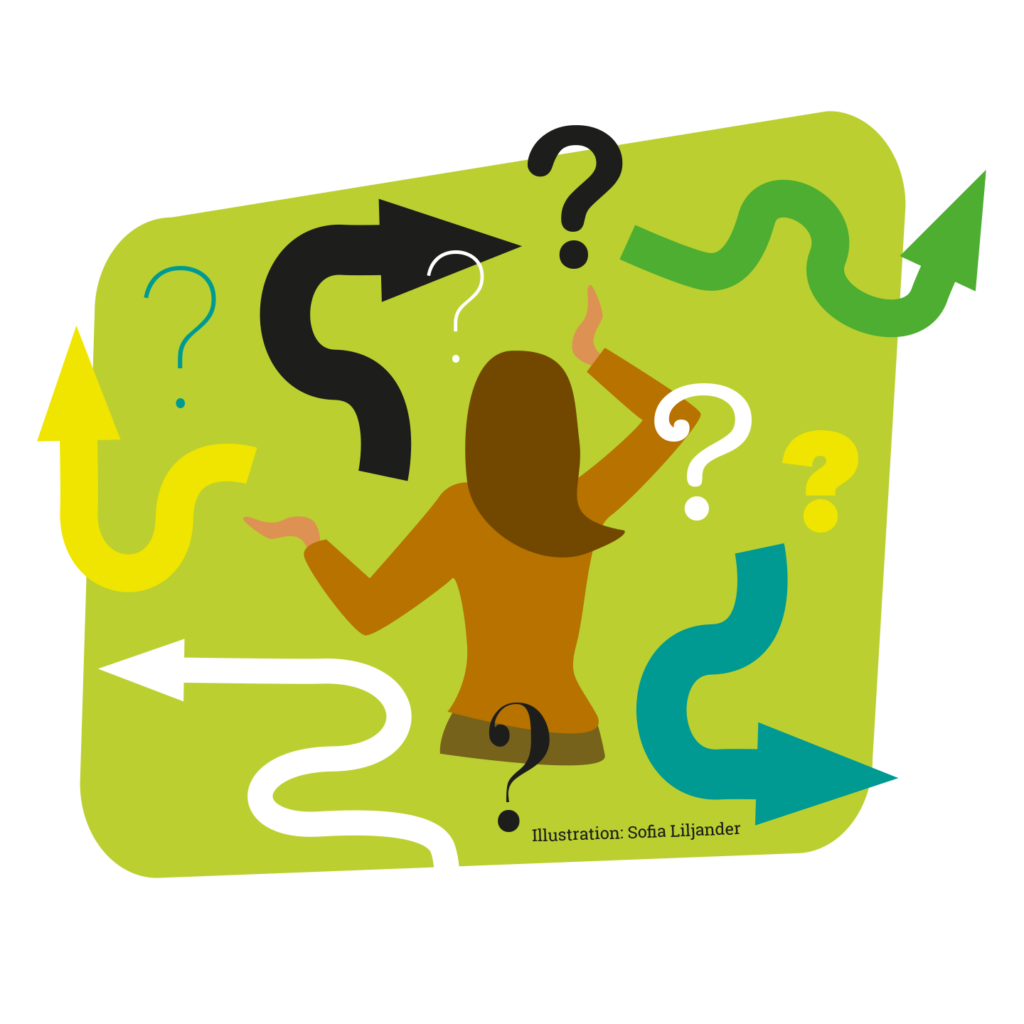Futures literacy – what does it mean?
Increased futures literacy helps us to confront the challenges facing the world. A central component is "active hope", a methodical approach to achieving a desired change.
Futures literacy is a skill, just like reading and writing. This is how Ruben Ritzén, anthropologist and former employee at the SSNC, views the concept that sharpens our ability to understand the future and the role it plays in today's society.
But first he wants to make a correction.
– We almost always talk about the future, as if there was only one possible future that we cannot influence. Futures literacy means, instead, talking about futures, to emphasize that the time ahead of us is not predetermined but something we can influence, says Ritzén.
Through practising futures literacy, it becomes easier to respond to unexpected events, because you realize that the future is open. Events in the present can take many different paths in the future, even some that we cannot imagine today. Futures literacy also paves the way for a political debate that looks beyond “realpolitik”, which often governs the agenda. So instead of adopting short-sighted policies that focus exclusively on practical, tangible gains (usually economic), ideological considerations would also influence political decisions, explains Ritzén. For example, what impact would policies have on us in the long term – as individuals, society and on the planet?
– Futures literacy leads to an increased openness to the future. That is important, not least when it comes to sustainability. When we talk about "sustainability" and a "sustainable future", it means different things to different people.
The ways in which we envision and talk about a sustainable future affects the decisions that are made today.
– Talking about a sustainable future founded on technical solutions, or one based on behavioural change will influence which political decisions are taken. For example, a focus on devices that capture and store carbon dioxide from the atmosphere might result in certain companies and projects receiving funding, and associated policies being implemented. If, on the other hand, we imagine a future in which we have reduced production, travel less and buy locally grown food, this might also influence what policies are implemented. Futures literacy can help us to recognise the narratives being put forward, which makes it a political skill, as well as a democratic right.
– By practicing your futures literacy, you can more easily decide which future you want to strive towards. Possessing that skill makes it easier to navigate a rather complex political landscape.
Beyond the Fossil Era, which is run by the Swedish Society for Nature Conservation in cooperation with Lund University, is a way for students to practise and refine their futures literacy.
– In Beyond the Fossil Era, we let the pupils time travel to the future. There, we present a future scenario that in some ways can feel realistic and reasonable, and in other ways can be a bit provocative. This opens up a discussion about what kind of future they want. The goal is to get the participants to understand the connection between the present and the future and that choices made today affect society's development going forward.
Within the framework of Beyond the Fossil Era, the term "futures literacy" is also closely intertwined with the concept of "active hope". This is a concept that was coined in 2012* and is a constructive method that people can use to confront the great challenges that the sustainable transition requires.
– The easiest way to explain "active hope" is with the material Beyond the Fossil Era. It means acknowledging the problems that exist today, but not getting stuck in the idea that they are impossible to solve. Instead, it is about seeing what concrete solutions actually exist and how different actors can cooperate to achieve a change. For example, activism alone is not enough. Political decisions, norm changes and innovations are also required.
– Active hope involves formulating a vision of how you want the world to be and then working to realize it in reality. The concept is based on psychological research that shows that people become less overwhelmed, and feel less helpless, if they are working towards a goal.
Many young people feel that change is happening too slowly, and that politicians easily get caught up in realpolitik and trying to solve short-term problems, instead of working towards long-term solutions for a sustainable society.
– I think there is a lack of political vision, and here, once more, futures literacy comes into play. By talking about different possible futures, we can lift the discussion from the everyday politics of present-day life. In Beyond the Fossil Era, the pupils get to step into the future and see how slow, small changes have contributed to a large-scale transition, says Ritzén.
Text: Görrel Espelund
*The term "active hope" was popularized through the book Active Hope: How to Face the Mess We’re in Without Going Crazy, by Joanna Macy and Chris Johnstone.
https://www.activehope.info/
Read the article in swedish.
